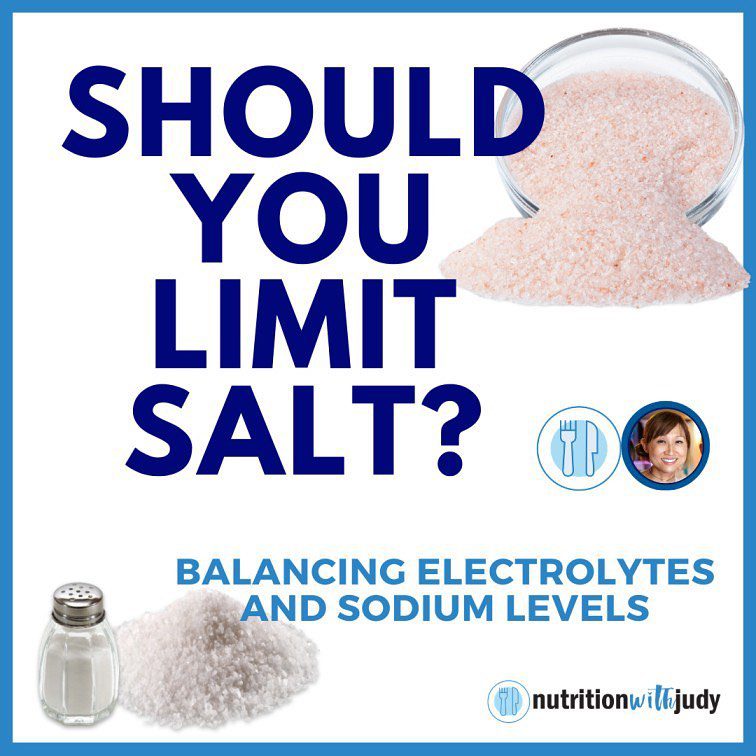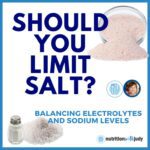

Microblog: Should You Limit Salt? – Balancing Electrolytes and Sodium Levels


⁉️There are differing views on the need for added salt. Some low-salt advocates believe that there is sufficient sodium in our meats and no additional salt is needed.
🗣Some anecdotal stories hold this to be true. But for most of us, we need to add more life-giving salt.
Depending on the type of salt, salt is mostly 40% sodium and 60% chloride.
⚖️Sodium is a mineral and an electrolyte. Sodium helps to keep the balance of fluids in and outside of the body’s cells and how the nerves and muscles work in the body. In my next blog post, I’ll talk about the importance of balancing electrolytes.
💉WHY WE NEED SODIUM
More than 85% of the sodium in our body is found in the blood and in the lymph fluid (the stem that carries lymph fluid, nutrients and waste around the tissues and bloodstream).
🩸Maybe this is why many tribal communities drink the blood of the animal.
🧫NORMAL SODIUM LEVELS
Sodium can be measured in urine, blood and hair mineral tests.
Blood tests show a normal range between 136-145 mmol/L.
💇🏻♀️While blood markers show serum sodium levels for a brief snapshot in time, hair tissue mineral tests show an average of 3-month-mineral-levels in the cells. If you are having a hard time balancing electrolytes on a lower carbohydrate diet, hair tissue tests are a great tool to getting to root cause.
❓DID YOU KNOW?
The most frequent imbalance in hospital patient’s blood test is LOW blood sodium levels.
⚠️Yet we are always told to limit salt and that low-salt diets are ideal for high blood pressure.
⁉️WHY?
💡Figure out what amount of salt works for you. If you have the symptoms of low salt, you may want to start consuming more minerals salts. I am a big fan of sole water and using a variety of Celtic, Redmond’s and Himalayan salt to ensure the maximum amount of minerals and the least amount of heavy metals.
⛑Find the amount that works for you but remember, a low salt diet is rarely the answer.



